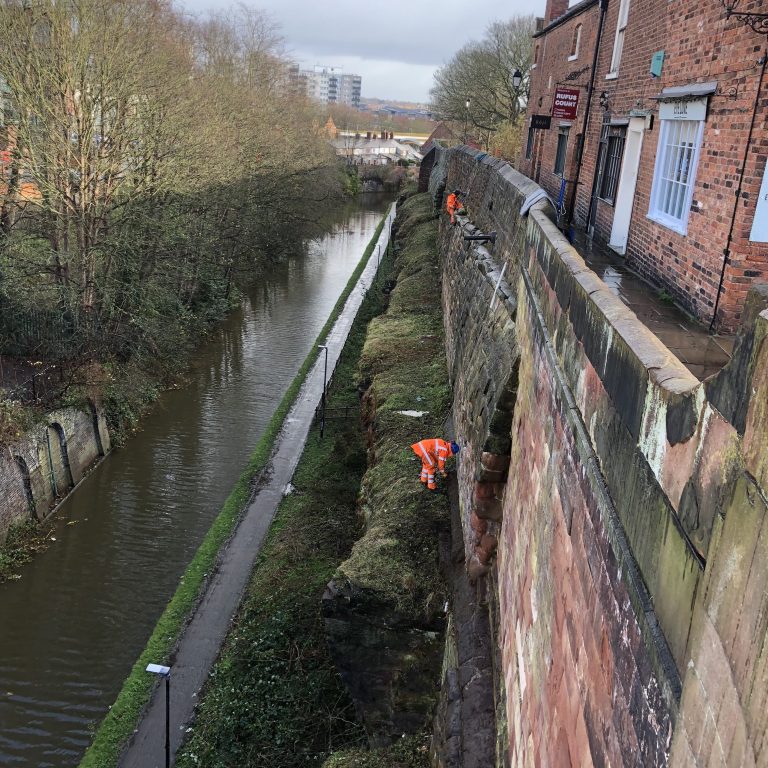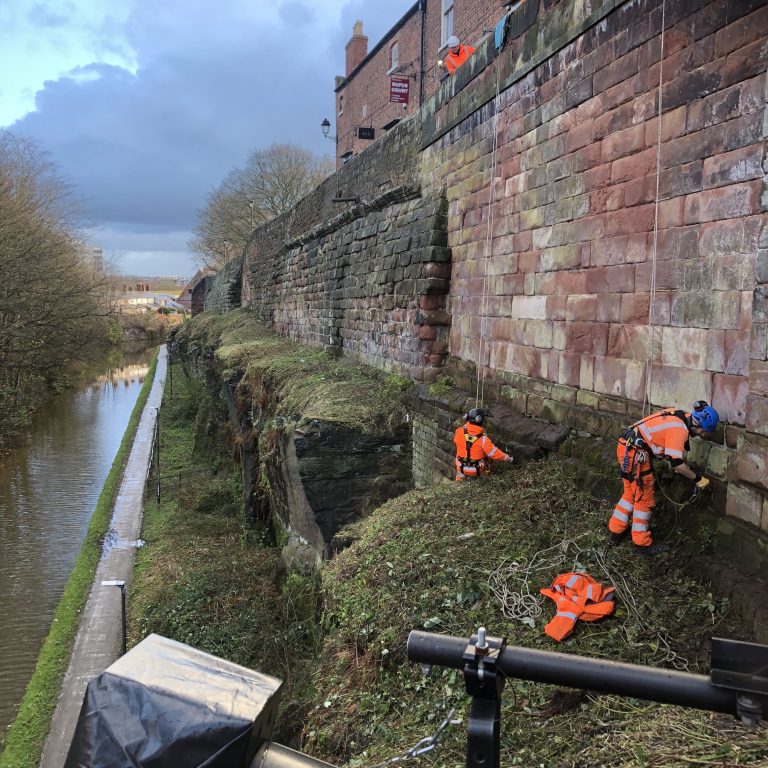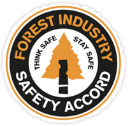
Chester: Historic Roman Walls
We were tasked by the client to remove vegetation to allow for inspection and to prevent vegetation growing into defects and joints. This can lead to ‘root jacking’, which can cause instability and ultimately failure within natural and man-made rock / masonry structures. Due to the 2000 year history and rich heritage that the walls hold, a sensitive and non-invasive approach was required, metal and tools were prohibited from making contact with the structure.
Action Taken
Arb Access used Deadweight anchor trolleys to provide a safe system of access that could be mobile where required and avoid damaging the fabric of the structure by installing fixed anchors such as eyebolts.
The vegetation was removed by hand, placed in ton bags and removed from site.
Due to the walls being a popular attraction, care was taken to create as little impact as possible to members of the public, walkways remained open and work was frequently halted by our sentries managing exclusion zones to allow members of the public to safely pass.






